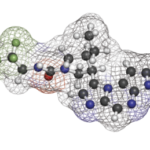 Recent research examined the use of upadacitinib (ABT-494) in patients with moderate to severe rheumatoid arthritis (RA) who had an inadequate response to conventional disease-modifying anti-rheumatic drugs (csDMARDs). This study was a double-blind, placebo-controlled, phase 3 clinical trial.1
Recent research examined the use of upadacitinib (ABT-494) in patients with moderate to severe rheumatoid arthritis (RA) who had an inadequate response to conventional disease-modifying anti-rheumatic drugs (csDMARDs). This study was a double-blind, placebo-controlled, phase 3 clinical trial.1
During period 1 of the study, patients (N=661) were randomized to receive once daily, extended-release upadacitinib in 15 mg or 30 mg doses, or placebo for 12 weeks. The primary efficacy endpoints were the proportion of patients who achieved an ACR20 response and the proportion of patients who achieved a DAS28-CRP low disease activity (LDA) score of ≤3.2 at Week 12. At baseline, demographics and disease characteristics were similar among the treatment groups. Ninety-four percent of randomized patients (n=618) completed period 1.
All of the study’s primary and secondary endpoints were met for both upadacitinib doses. At Week 12, significantly more 15 mg and 30 mg upadacitinib-treated patients achieved an ACR20 response (64% and 66%, respectively) compared with placebo-treated patients (36%, P<0.001). Additionally, the DAS28-CRP LDA scores of less than 3.2 were 48%, 48% and 17%, respectively (P<0.001).
The onset of action for upadacitinib was fast. Significantly more upadacitinib-treated patients achieved an ACR20 response at Week 1 compared with placebo-treated patients. At Week 12, significantly more upadacitinib-treated patients met ACR50 and ACR70 responses compared with placebo-treated patients. Results were 38% (ACR50) and 21% (ACR70) for 15 mg upadacitinib, and 15% (ACR50) for placebo and 43% (ACR50) and 27% (ACR70) for 30 mg upadacitinib and 6% (ACR70) for placebo. Additionally, more upadacitinib-treated patients achieved DAS28-CRP <2.6 and CDAI-LDA (P<0.001) compared with placebo-treated patients. Both doses of upadacitinib had significantly (P<0.001) greater DAS28-CRP, HAQ-DI, morning stiffness and FACIT-F improvements compared with placebo-treated patients.
Adverse events occurred in more upadacitinib-treated than placebo-treated patients, with a higher incidence of infections. Four cases of varicella zoster virus infection were reported, with one case in a placebo-treated patient. Asymptomatic CPK elevations occurred in 2.3–2.7% of upadacitinib-treated patients. Two malignancies and three cardiovascular events were reported during the study. No deaths, gastrointestinal perforations or cases of tuberculosis were reported. No instances of pulmonary embolism/deep vein thrombosis were reported.
The tolerability and safety of upadacitinib were consistent with observations from phase 2 clinical trials.
Michele B. Kaufman, PharmD, BCGP, is a freelance medical writer based in New York City and a pharmacist at New York Presbyterian Lower Manhattan Hospital.
Reference
- Burmester G, Kremer J, van den Bosch F, et al. A phase 3 randomized, placebo-controlled, double-blind study of upadacitinib (ABT-494), a selective jak-1 inhibitor, in patients with active rheumatoid arthritis with inadequate response to conventional synthetic DMARDs (OP0036). Ann Rheum Dis. 2018 Jun;77:68–69.


